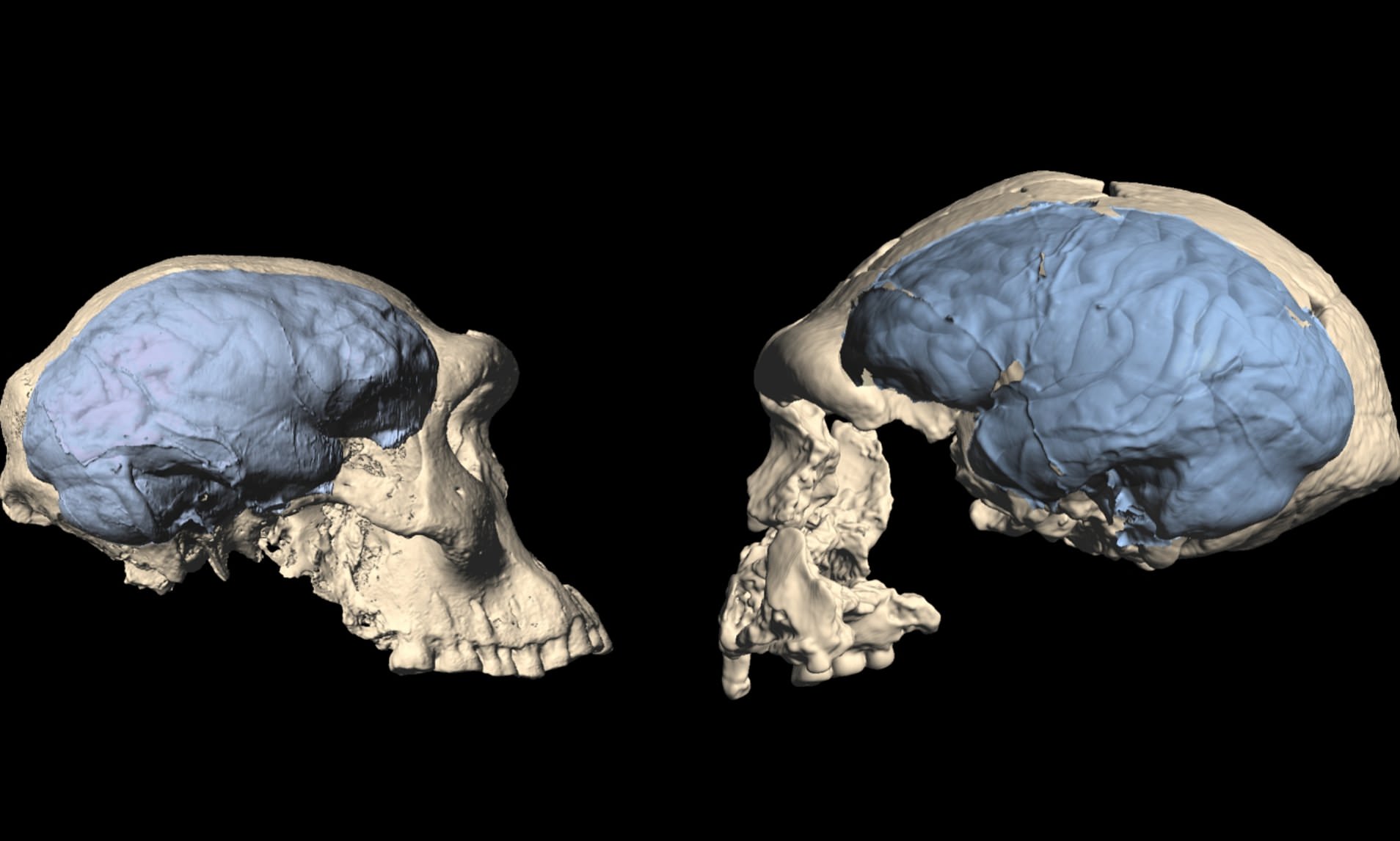According to a study, Modern human brain compositions developed 1.5 – 1.7 million years ago in the African Homo communities. They had started walking on two feet and had even begun flowing out of Africa. The first ancestors from the genus Homo arose in Africa about 2.5M years ago and walked erect, but had archaic ape-like brains about half the size of present-day humans, stated the researchers from the University of Zurich in Switzerland.
Since brains themselves don’t petrify, the only way to examine their evolution is to analyze the marks they leave inside the skull. The scientists generated virtual images called endocasts that filled the skulls long ago. The Broca area in humans, a part of the frontal lobe connected to speech production is bigger than the corresponding region in other great apes, stated Zollikofer, of the University of Zurich.
What has Identified Apart from Size of Human Brain?

Besides the size, the team even discovered the place and organization of each brain region. The researchers were able to determine by studying skulls from Africa that the oldest ones dating back more than 1.7 M years ago had a frontal lobe point of great apes.
The unit used computed tomography to study the skulls of Homo fossils that lived in Georgia, Africa, and Java in Indonesia 1-2M years ago. They matched the fossil data with text data from humans and great apes. Meantime, fossils from Java, the youngest specimens in the study, explained modern brain characteristics. The researchers, hence, believe that there was another migration out of Africa.
Nevertheless, these humans were enough capable of making various tools, adjusting to the new environmental provisions of Eurasia, developing animal food sources, and caring for team members in need of help.
“The quickest forms of human language have likely developed during this period,” stated anthropologist de Leon.
Also, read – Samsung Galaxy Z Fold 3 has a Tiny Cover Display!!
